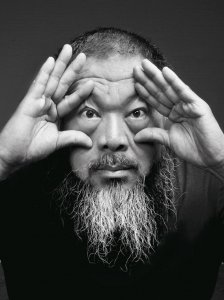Begun in 2006 and closed down by the authorities three years later, the blog of the artist and architect Ai Weiwei came to attention at the international level as one of the most courageous cultural and political acts in contemporary China. An implacable critic of the ruling class in the tradition of the “public intellectuals” of the 20th century, Ai took up in his writings the demands for pluralism stifled in bloodshed in Tiananmen Square in 1989, using the Internet to protest against the material and moral consequences – concealed by the regime’s propaganda – of the Chinese model of development: the lack of political rights, the savage exploitation of labour, the destruction of the environment and historical memory, the violent repression of minorities, the arrogance and impunity of the rich and powerful, and the rigid control over public opinion. Defying censorship, Ai Weiwei created an unprecedented form of civil and cultural resistance. His posts alternate criticism and protest, discuss the latest artistic developments, mercilessly expose official hypocrisy and use humour and polemical verve to lay bare the lies, cynicism and resignation inculcated by an establishment that combines paternalism and harsh repression to keep its citizens in a state of eternal infancy in which the rituals of consumerism have replaced the permanent mobilization of Mao’s era.
Now translated into Italian, Ai Weiwei’s blog also constitutes proof of the power of art as a tool of resistance and regeneration. Renewing the impulse of the modern avant-garde, his digital diary becomes a means of collective mobilization, a “social sculpture” that transcends the boundaries of traditional creativity to raise urgent questions about the role and responsibility of the artist, the spectator and indeed all of us. A living sculpture, an agent of transformation of the world thanks to which the dimension of the multitude that characterizes our social field can acquire self-awareness and discover its strength, finding the essential value of truth once again and with it the possibility of a different time and space in keeping with the needs of more complete and freer human beings.
Discover

